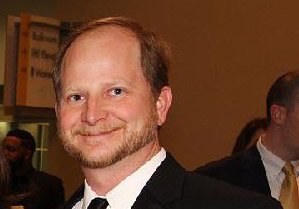Opponents of proposed privately owned wastewater treatment plants are concerned that a 2015 law that repealed the financial-assurance requirements of such facilities will hamper improvements to any plant in violation of environmental regulations.
RELATED ARTICLE
http://www.arkansas…">Proposed treatment plant irks neighbors
The bill was sponsored by state Rep. Andy Davis, who sells and operates wastewater-treatment plants as the owner of New Water Systems. Davis, R-Little Rock, said the law doesn't change anything except to repeal cumbersome requirements.
Requiring financial assurance meant that a wastewater-plant operator needed a bond or a letter of credit assuring the state Department of Environmental Quality that it had a way of financing major improvements if needed.
A letter of credit documented that an operator had a certain amount of money -- enough to operate for five years -- in the bank. For many operators, that was tens of thousands of dollars. A bond would require a smaller amount but a financial institution to agree to ensure the rest of any additional funds.
Davis added that wastewater operators were "never" able to obtain the bonds, and called the financial assurance requirements "arduous."
The 2015 law repealed those requirements for treatment plants installed in unincorporated areas and instead requires them to pay up to $1,000 annually, if they discharge wastewater, into a trust fund that would be capped at $2.1 million. The law applies to all existing and new applicable wastewater plants.
Now, permitted facilities must make new payments into the Environmental Quality Department's trust fund, which can be tapped for remediation projects. The department must approve access to the fund. The department has called for letters of credit in the past related to financial assurances for repairs, remediation or the closure of a facility, said Caleb Osborne, the department's associate director of water quality.
Opponents of the law, which include those fighting a proposed wastewater-treatment plant near Lake Conway, question whether the $36,745 balance in the trust fund would be enough to fix a treatment plant, let alone more than one, which can cost hundreds of thousands of dollars to build.
Davis said the department could address that concern by not issuing new permits to such facilities until the trust fund has time to build up.
Shifting the permit fees into a trust fund creates a pool of taxpayer money that would be used for a project that the operator and customers should be paying for, said Drew Kelso of Concerned Citizens of West Pulaski County, which opposes two wastewater plants proposed for just outside Little Rock.
"It's in no way provided financial assurance for the long-term operations and viability of the sewage treatment plants in subdivisions," Kelso said. "It's minuscule in addressing the enormity of the environmental catastrophes that could occur. That trust fund is not nearly large enough."
Davis said opponents of the legislation are concerned about the Department of Environmental Quality being put in a position it's rarely found itself in, since it's rarely called a utility's letter of credit to fix problems.
Davis said the law doesn't make going into business easier for developers because they have always been able to skirt financial-assurance requirements by creating improvement districts. Improvement districts have boards made of community members that can change wastewater rates if a need arises, which provides another mechanism of financial assurance.
"It was arduous for some property owners, but it was not so much that it would keep somebody from developing," he said.
While developers still can create improvement districts, the new law means now they neither have to create them nor provide financial assurance.
Davis' company, New Water Systems, operates plants across Arkansas. His facilities have hundreds of violations for improperly discharging into waterways. Some are for discharging several times higher than the permit allows for fecal coliform and nitrogen.
"Violations will occur," he said. "It's usually not serious."
Davis said he understood why some might view his sponsorship of the law as self-serving, but he said he doesn't benefit any more than anyone else.
"I certainly have not sold any treatment plants because we changed how the financial assurance works," he said.
Davis was set to be the operator of one of three wastewater treatment plants opposed recently in central Arkansas. The Trails subdivision, proposed just outside Little Rock by developer Wayne Ritchie, had sought approval from the Little Rock Planning Commission and the Environmental Quality Department. Plans were pulled before the city, and no decision has been made at the department.
Davis withdrew Monday from his role as the proposed operator for the plant in the Trails subdivision.
"It's just clear, having spoken to a lot of my constituents out there, that we need to do more policy work on how we manage these systems," Davis said. "I still think that they are good and applicable and definitely a tool we can use for responsible development, but I want to be able to work with my constituents. ... I just think it's best to do that while I'm not actively involved in a project."
Metro on 07/27/2016
